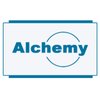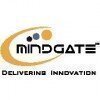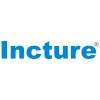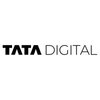Filter interviews by
Indus Net Technologies Interview Questions and Answers
23 Interview questions
The bug life cycle outlines the stages a bug goes through from identification to resolution in software development.
1. **Identification**: A bug is discovered during testing or by users. Example: A user reports a crash when opening the app.
2. **Reporting**: The bug is documented in a bug tracking system with details like severity and steps to reproduce. Example: A QA engineer logs the bug in JIRA.
3. **Triage**: Th...
JavaScript provides built-in methods to sort arrays, primarily using the sort() function for custom sorting.
The sort() method sorts the elements of an array in place and returns the sorted array.
By default, sort() converts elements to strings and compares their sequences of UTF-16 code unit values.
To sort an array of strings alphabetically: const fruits = ['banana', 'apple', 'cherry']; fruits.sort(); // ['...
Dynamic refers to runtime behavior while object refers to a specific instance of a class.
Dynamic behavior is determined at runtime, while objects are instances of classes
Dynamic programming languages allow for dynamic behavior, while objects are static entities
Examples: In Python, dynamic behavior can be seen with dynamic typing, while objects are created using classes and instantiated as objects
finalize and compose are methods used in software development to manage resources and create complex objects.
finalize is a method in Java used for cleanup operations before an object is garbage collected
compose is a design pattern where objects are combined to create a more complex object
finalize is discouraged to be used in modern Java due to unpredictability
Views are virtual tables generated from a query, while temp tables are physical tables stored in tempdb for temporary use.
Views are saved queries that act as virtual tables, while temp tables are physical tables stored in tempdb.
Views are not stored physically on disk, while temp tables are stored in tempdb.
Views are used for simplifying complex queries and providing security, while temp tables are used for storin...
Indexes are data structures that improve the speed of data retrieval operations in databases.
Indexes are used to quickly locate data without having to search every row in a database table.
They are created on columns in a database table to speed up the data retrieval process.
Examples of indexes include primary keys, unique keys, and non-unique keys.
BRD stands for Business Requirements Document, a formal document that outlines the business requirements for a project.
BRD is a key document in the project management process, detailing what the business needs in order to achieve its goals.
It includes information on the scope of the project, objectives, stakeholders, functional requirements, non-functional requirements, and constraints.
BRD serves as a communicatio...
Private members are accessible only within the same class, while protected members are accessible within the same class and its subclasses.
Private members can only be accessed within the same class
Protected members can be accessed within the same class and its subclasses
Private members are not inherited by subclasses
Protected members are inherited by subclasses
NoSQL databases are used for scalability, flexibility, and handling unstructured data.
Scalability: NoSQL databases can easily scale horizontally to handle large amounts of data and high traffic.
Flexibility: NoSQL databases do not require a predefined schema, allowing for easy modifications and additions to data.
Handling unstructured data: NoSQL databases are well-suited for storing and querying unstructured data l...
Drupal version upgradation process involves backing up data, updating core files, modules, and themes, testing the site, and deploying changes.
Backup the website files and database before starting the upgrade process
Update Drupal core files to the latest version
Update all modules and themes to be compatible with the new Drupal version
Test the website thoroughly to ensure all functionalities are working correctly
De...
Indus Net Technologies Interview Experiences
28 interviews found
It was simple apptitude
(2 Questions)
- Q1. Difference between private and protected
- Ans.
Private members are accessible only within the same class, while protected members are accessible within the same class and its subclasses.
Private members can only be accessed within the same class
Protected members can be accessed within the same class and its subclasses
Private members are not inherited by subclasses
Protected members are inherited by subclasses
- Q2. Why we use nosql database
- Ans.
NoSQL databases are used for scalability, flexibility, and handling unstructured data.
Scalability: NoSQL databases can easily scale horizontally to handle large amounts of data and high traffic.
Flexibility: NoSQL databases do not require a predefined schema, allowing for easy modifications and additions to data.
Handling unstructured data: NoSQL databases are well-suited for storing and querying unstructured data like d...
(2 Questions)
- Q1. General questions
- Q2. About availability
Skills evaluated in this interview
(2 Questions)
- Q1. Are you comfortable to change the job profile from frontend to backend
- Q2. Can you relocate to kolkata?
- Ans.
Yes, I am open to relocating to Kolkata for the right opportunity and to further my career in software engineering.
Kolkata has a growing tech scene with many startups and established companies.
Relocating can provide exposure to diverse projects and teams.
I am excited about the cultural experiences and networking opportunities in Kolkata.
I have researched living conditions and find them suitable for my lifestyle.
I applied via Company Website and was interviewed before Aug 2023. There was 1 interview round.
(5 Questions)
- Q1. I'm Indrasena communication soft skills
- Q2. I'm working on Indrasena software developer Wipro
- Q3. I'm Indrasena Intrested
- Q4. I'm Indrasena communication soft skills Wipro Infotech Pvt
- Q5. Indrasena software developer Wipro Infotech y
Interview Preparation Tips
Mathematics, English
(1 Question)
- Q1. Project work- Libraries used
- Ans.
I have experience using various libraries such as React, Redux, and Express in my project work.
React
Redux
Express
I applied via Naukri.com and was interviewed before Jun 2023. There were 3 interview rounds.
(1 Question)
- Q1. Case solving within 10 min
(1 Question)
- Q1. Explain about BRD
- Ans.
BRD stands for Business Requirements Document, a formal document that outlines the business requirements for a project.
BRD is a key document in the project management process, detailing what the business needs in order to achieve its goals.
It includes information on the scope of the project, objectives, stakeholders, functional requirements, non-functional requirements, and constraints.
BRD serves as a communication too...
(1 Question)
- Q1. Introduce yourself
Normal aptitude test which covered common areas
Interview Preparation Tips
(2 Questions)
- Q1. Removed duplicate in array
- Ans.
Remove duplicate strings in an array
Use a Set data structure to store unique strings
Iterate through the array and add each string to the Set
Convert the Set back to an array to get the final result
- Q2. Find unique value
- Ans.
Find the unique value in an array of strings
Iterate through the array and use a hashmap to store the frequency of each element
Return the element with frequency 1 as the unique value
Skills evaluated in this interview
I appeared for an interview before Feb 2024.
(6 Questions)
- Q1. What's charecteristics of oops?
- Q2. Diffrence between dynamic and object?
- Q3. What is finilize and compose.
- Q4. What is indexs?
- Q5. How to delete duplicate records from sql.
- Q6. What is the difference between views and temp table?
Interview Preparation Tips
I applied via Campus Placement

Aptitude questions are easy but coding was bit tuff
(2 Questions)
- Q1. Tell me the basic pillars of opps
- Ans.
The basic pillars of OOP are encapsulation, inheritance, and polymorphism.
Encapsulation: bundling of data and methods that operate on that data within a single unit
Inheritance: ability of a class to inherit properties and methods from a parent class
Polymorphism: ability of objects to take on multiple forms or behaviors depending on the context
- Q2. Diffrence between jre jdk jvm
- Ans.
JRE is a runtime environment, JDK is a development kit, and JVM is a virtual machine.
JRE stands for Java Runtime Environment and is used to run Java applications.
JDK stands for Java Development Kit and is used to develop Java applications.
JVM stands for Java Virtual Machine and is responsible for executing Java bytecode.
JDK includes JRE and additional development tools such as compilers and debuggers.
JVM is platform-de...
Interview Preparation Tips
Skills evaluated in this interview
I applied via Company Website and was interviewed before May 2023. There were 3 interview rounds.
(5 Questions)
- Q1. Concept on Drupal Views with aggregation & contextual filter
- Ans.
Drupal Views allows for data aggregation and contextual filtering to customize content display based on user input or context.
Aggregation in Views enables summarizing data, like counting the number of nodes or calculating averages.
Example: Use aggregation to count the number of articles per author by grouping by the author field.
Contextual filters allow Views to filter results based on dynamic input, such as URL parame...
- Q2. Drupal custom theme integration
- Q3. Knowledge on Drupal custom module
- Ans.
Drupal custom modules extend functionality, allowing tailored features and integrations for specific site needs.
Custom modules are created in the 'modules/custom' directory of a Drupal installation.
Use hook implementations (e.g., hook_form_alter) to modify existing forms.
Define custom routes in a module using hook_menu() or routing.yml for better URL management.
Create custom entities or content types to manage unique d...
- Q4. Drupal 7 vs Drupal 8 comparison
- Ans.
Drupal 8 offers improved performance, better security, and more modern features compared to Drupal 7.
Drupal 8 has a more user-friendly admin interface
Drupal 8 uses Symfony components for improved performance
Drupal 8 has better multilingual support out of the box
Drupal 8 has improved content authoring capabilities with CKEditor integration
Drupal 8 has enhanced mobile responsiveness with built-in responsive themes
- Q5. Drupal version upgradation process
- Ans.
Drupal version upgradation process involves backing up data, updating core files, modules, and themes, testing the site, and deploying changes.
Backup the website files and database before starting the upgrade process
Update Drupal core files to the latest version
Update all modules and themes to be compatible with the new Drupal version
Test the website thoroughly to ensure all functionalities are working correctly
Deploy ...
Create a REST API which will create a node with taxonomy term reference and other basic fields. Code should be shared in a github account with sample request & response from Postman.
(1 Question)
- Q1. Salary discussion & Joining availability
Interview Preparation Tips
- PHP
- OOPS
- Drupal
- REST API
Skills evaluated in this interview
Top trending discussions






Indus Net Technologies Interview FAQs
The duration of Indus Net Technologies interview process can vary, but typically it takes about less than 2 weeks to complete.
Tell us how to improve this page.
Indus Net Technologies Interviews By Designations
- Indus Net Technologies Software Engineer Interview Questions
- Indus Net Technologies Associate Software Engineer Interview Questions
- Indus Net Technologies Business Analyst Interview Questions
- Indus Net Technologies Project Manager Interview Questions
- Indus Net Technologies Associate Data Analyst Interview Questions
- Indus Net Technologies Data Analyst Interview Questions
- Indus Net Technologies Creative Designer Interview Questions
- Indus Net Technologies Client Partner Interview Questions
- Show more
Interview Questions for Popular Designations
- Software Engineer Interview Questions
- Associate Software Engineer Interview Questions
- Intern Interview Questions
- Software Developer Interview Questions
- Senior Associate Interview Questions
- Business Analyst Interview Questions
- Sales Executive Interview Questions
- Consultant Interview Questions
- Show more
Overall Interview Experience Rating
based on 23 interview experiences
Difficulty level
Duration
Interview Questions from Similar Companies
Indus Net Technologies Reviews and Ratings
based on 366 reviews
Rating in categories
|
Software Engineer
305
salaries
| ₹4.8 L/yr - ₹10.1 L/yr |
|
Associate Software Engineer
159
salaries
| ₹2 L/yr - ₹9 L/yr |
|
Senior Software Engineer
158
salaries
| ₹8 L/yr - ₹14 L/yr |
|
Project Manager
48
salaries
| ₹7.5 L/yr - ₹20.7 L/yr |
|
Team Lead
48
salaries
| ₹5.4 L/yr - ₹13.4 L/yr |

Tekwissen

Softenger

XcelServ Solutions

Capital Numbers Infotech
- Home >
- Interviews >
- Indus Net Technologies Interview Questions
















